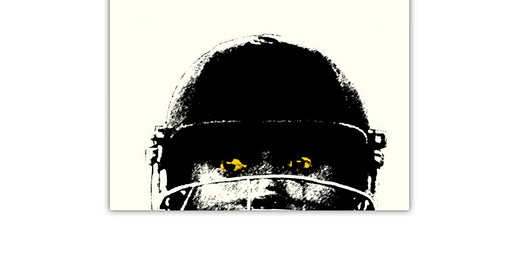Either / Or
Søren Kierkegaard once wrote a book called Either / Or. In broadly the same spirit, I offer you a choice.
Either, an article I’ve written about Zak Crawley and Frank Woolley, two of the greats of Kent and England Cricket, in The Nightwatchman, the Wisden Cricket Quarterly. Or, an academic article on ‘Secularization, Profanation, and Knowledge of the Heart in Contemporary French Fiction’.
To help you decide, let me give you the opening lines of the former and the abstract for the latter.
Either,
Playing for Kent in the 2024 County Championship, Zac Crawley scored 5, 4, 41, 1, 6, 10, 0, 238, 16, and 1. In the T20s, he scored 26, 20, 0, 4, 1, 7, 4, and 20. Playing for England against New Zealand at the end of the season, he scored 0, 1, 17, 8, 21 and 5. Of all the players at Canterbury in Kent’s first home match of the 2025 season, it was Crawley I had come to see.
It was the start of Holy Week but Crawley’s slow passion had resumed earlier in Lent. Against Northants in the first match of the season, he had racked up a grand total of 32 runs in two innings. In his first swipe against Middlesex, he did not add to that total. I considered watching the second innings with my eyes mainly closed and my head conveniently in my hands.
After two days of apparently sempiternal heat, the Spitfire Ground was serene but thirsty. The lime tree was wilting. The crowd had slowly dissipated. Middlesex’s tailenders batted all morning. During the lunch interval, we fortified ourselves with coffee and cheese rolls before wandering onto the sacral turf. “It’s playing low and slow,” the groundsman told us. I hoped Crawley would too.
Or,
Given the highly contested nature of the debate over secularization in modern literature, this paper examines the ways in which four contemporary French novelists address questions of human and divine absence in their fiction, focusing on Joël Egloff’s J’enquête, Gaspard-Marie Janvier’s Le dernier dimanche, Jérôme Ferrari’s Le sermon sur la chute de Rome, and Sylvie Germain’s Tobie des marais. It argues that some of the most pressing questions of our secular age—including questions of intersubjectivity and human and divine absence—are addressed in these competing narratives of secularization. It then examines Jean-Louis Chrétien’s notion of cardiognosie, or knowledge of the heart, and his argument that profanation, rather than secularization as such, is of central importance in the modern novel’s construction of meaning before concluding with a close reading of Jérôme Ferrari’s Le sermon sur la chute de Rome and a consideration of the heart in Sylvie Germain’s Tobie des marais as a first step toward establishing the means by which profanation has been faced and overcome in recent fictional texts.
Keywords: secularization; profanation; cardiognosie; heart; absence; contemporary French fiction; Jean-Louis Chrétien; Joël Egloff; Gaspard-Marie Janvier; Jérôme Ferrari; Sylvie Germain
To find the other articles in the Special Issue of Religions on Catholic Theologies of Culture, have a look here.
Of course, Either / Or aren’t the only two options. Not reading either piece is also completely fine.




